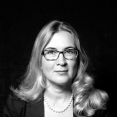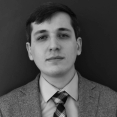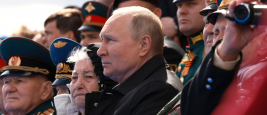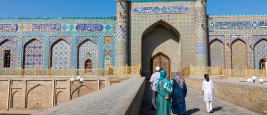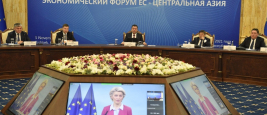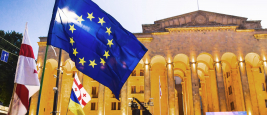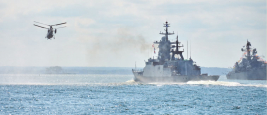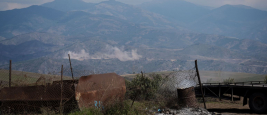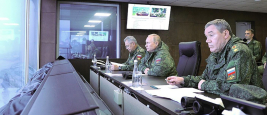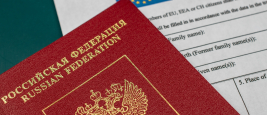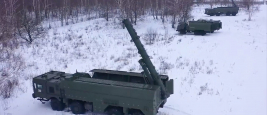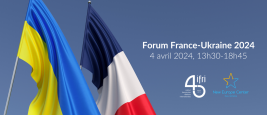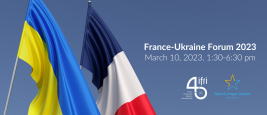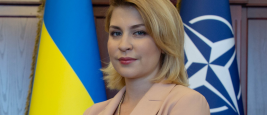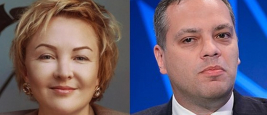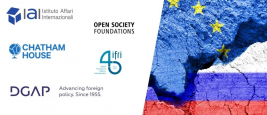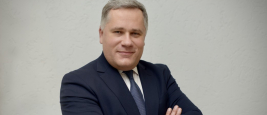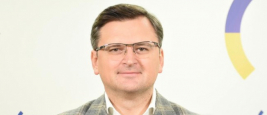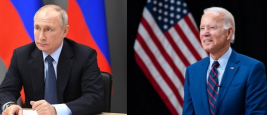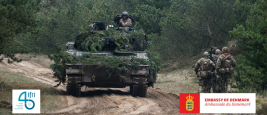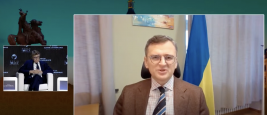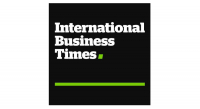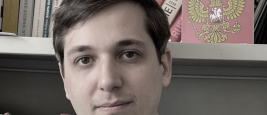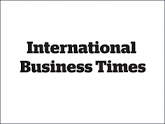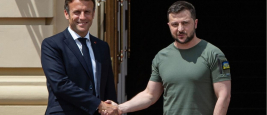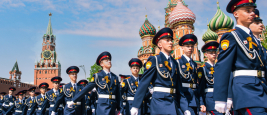Since the full-scale invasion of Ukraine on February 24, 2022, the Russian government has been proactive in the ideological realm to ensure the sustainability of the war for Russian society.

Russia / Eurasia

Post-Soviet Russia has gradually asserted itself as an imperial and anti-Western power, representing a threat to the independence of its Eurasian neighbors, as well as to the post-Cold War international order. The Kremlin’s invasion of Ukraine on February 24, 2022 is the culmination of this behavior, with both regional and global consequences. Now cut off and isolated from the Euro-Atlantic space, Russia is seeking to deepen its partnership with China and to turn towards non-Western worlds, especially in Asia and Africa. In the Eurasian space, historically dominated by Russia, the war amplifies centrifugal tendencies. The speed and depth of the transformations underway require constant and precise monitoring of the internal and external policies of the countries in the area.
Founded in 2005 at Ifri, the Russia/Eurasia Center produces research and organizes debates on Russia, Eastern Europe, Central Asia and the South Caucasus. Its objective is to understand and anticipate the evolution of this complex and rapidly changing region in order to enrich the public debate in France and Europe, and to assist in strategic, political and economic decision-making. Over time, the Russia/Eurasia Center has developed a network of contacts from institutions and civil society in the countries of the Eurasian space, and has established multiple partnerships with research institutes in Europe and around the world.
The digital collection Russia.Eurasia.Visions (formerly Russia.Nei.Visions), published by the Center, has become a reference point, with articles published in three languages (French, English and Russian). Relying on a network of leading experts and promising young researchers, it offers original analyses intended for public and private decision-makers, researchers, as well as for a wider public interested in the area.
Director of Ifri's Russia / Eurasia Center
...Research Fellow, Russia / Eurasia Center
...Project Officer, Russia / Eurasia Center
Associate Research Fellow, Russia / Eurasia Center
...Associate Research Fellow, Russia / Eurasia Center
...Associate Fellow, Russia / Eurasia and Geopolitics of Technologies Centers
...Associate Fellow, Russia / Eurasia Center
...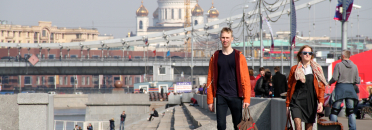
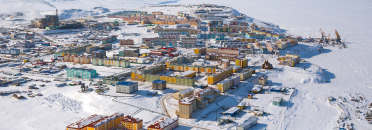

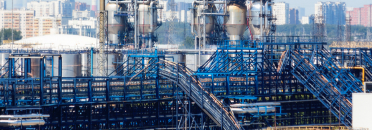

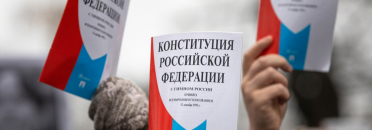
This study aims to decipher the complex relationships between politics, Islam, and society in Uzbekistan and, more specifically, the dynamics at work in the religious revival of Uzbek youth.
This report analyzes the economic and geopolitical situation in Central Asia.
The end of 2023 is due to mark a turning point in Georgian history. In December, the European Council will decide whether to award the country European Union (EU) candidate status.
The long war in Ukraine has brought a drastic geopolitical reconfiguration of the Baltic theater and a deep shift in the military balance between Russia and the North Atlantic Treaty Organization (NATO).
The tragic exodus of the Armenian population from the Nagorno Karabakh region has closed a chapter in the long saga of conflict between Armenia and Azerbaijan.
The Russian army is very critical of its war in Ukraine. Not just of the first phase of the failed special military operation (SVO), which was inspired by the theorization of bypassing, but also of the strategic deterrence phase that preceded it.
Russia’s assault on Ukraine not only changed the contours of world geopolitics; it deeply affected the fabric of Russian society, provoking a massive exodus of self-made and independent-minded people from the country.
Maia Sandu, who was elected President of the Republic of Moldova by direct universal suffrage in November 2020, won a large parliamentary majority in the snap parliamentary elections held in July 2021. Her plan for the internal transformation of Moldova is closely linked to her...
The traditional and high-intensity war that has occurred in Ukraine since Russia decided to invade raises a key issue: did post-soviet Russian strategic thought really prepare Russia for waging this war?
2024 France-Ukraine Forum Conférence
Two years after the start of Russia's full-scale war against Ukraine, the France-Ukraine 2024 Forum will welcome politicians, experts, academics and members of associations from both countries.
France-Ukraine Forum 2023 By invitation only
One year after the beginning of the war unleashed by Russia against Ukraine, the second France-Ukraine Forum will host political officials, experts, academics, and association members from both countries to discuss three main issues: military aspects and scenarios for ending the war;...
Ukraine: On the Way to the European Union through the War. Online Briefing by Deputy Prime Minister Olha Stefanishyna Videoconference
Nine months after the start of the Russian aggression, Olha Stefanishyna, Deputy Prime Minister for European and Euro-Atlantic Integration of Ukraine, discusses the situation in Ukraine and the country's prospects.
Russia at War: Internal Political, Economic and Energy Dimensions Conference
Over six months since the start of Russia’s invasion of Ukraine, what was to be a three days blitzoperation has turned into an ugly war of attrition with many strategic and tactical surprises. Putin is now doubt now counting on Ukraine and the West to bow first while Russia’s resilience will...
Ukraine: the epicenter of all crises? Ifri Conferences
Russia's invasion of Ukraine last February provoked a war of attrition that is still ongoing. In the meantime, the conflict has fueled intertwined economic, humanitarian, energy and food crises. This discussion aims to discern the conflict's immediate and future effects.
Toward a New European Security Order? Foreign Policy Shifts in Response to Russia’s War on Ukraine Ifri Conferences
Russia’s war on Ukraine has shaken the foundations of Western foreign policy and the multilateral rules-based order. Institutions built to preserve this order – like NATO, the G7, and the EU – have had to rethink their threat assessments and postures. France, Germany, Italy, and the UK have...
Russian War against Ukraine: State of Affairs by Igor Zhovkva, Deputy Head of the Office of the President of Ukraine Visioconférence
More than a month after the start of the Russian offensive against Ukraine, Igor Zhovkva, Deputy Head of the Office of the President of Ukraine, Ambassador Extraordinary and Plenipotentiary, will speak on the current military situation and the prospects for...
Security Situation in and Around Ukraine. Online Briefing by Ukraine’s Foreign Minister Dmytro Kuleba Closed-Door Seminar
Since 2014, Ukraine's territorial integrity and security have been challenged by Russia's annexation of Crimea and by the conflict in Donbas. Military maneuvers in spring and October 2021 have raised the threat of open armed conflict between Ukraine and Russia. Kyiv, on the other hand,...
Russia-US: What Perspectives after Joe Biden’s Election? Videoconference
After four years of a Trump presidency marked by “Russiagate”, the election of Joe Biden at the end of 2020 marks a new turning point in Russian-American relations. While the change in the American administration allowed the New START treaty on strategic arms reduction to be saved in...
European security: from words to deeds - lessons from the Franco-Danish partnership Visioconférence
Global power competition, growing unpredictability, mounting military pressures, hybrid threats and the persistence of terrorism... Europe is now facing a deterioration of its strategic environment.
...After more than 200 blue stars were stenciled on buildings in and around Paris, prosecutors say they are investigating whether a foreign intermediary paid a couple to spray paint them.
Interview between Dmytro Kuleba, Ukrainian Foreign Minister, and Thierry de Montbrial, Founder and Executive Chairman of the French Institute of International Relations, Founder and Chairman of the World Policy Conference.
The conflict between Hamas and Israel is both an opportunity and a risk for Russian President Vladimir Putin, who has been mired in pressing his invasion of Ukraine for the past 19 months.
The conflict between Hamas and Israel is both an opportunity and a risk for Russian President Vladimir Putin, who has been mired in pressing his invasion of Ukraine for the past 19 months.
For this Russian army specialist, at least part of the armed forces rallying behind the founder of the Wagner group, Yevgeny Prigozhin, cannot be ruled out.
According to the researcher, the failure of the Russian army in Ukraine is the result of the implementation of a theory that emerged in the 2000s, which places a central focus on 'psychological-informational' warfare rather than armed combat.
There is no sign the visit of Chinese President Xi Jinping to Moscow will rein in President Vladimir Putin in his war in Ukraine, even if it again highlights a lopsided relationship where Russia is clearly the junior partner, analysts say.
The Kremlin wanted Russia's invasion of Ukraine to yield a lightning victory, but 12 months on the war is dragging into a stalemate with neither side achieving military breakthrough nor prepared to agree a settlement based on the status quo.
Does the war in Ukraine change the prospect of European Union enlargement? What is the possibility and future of Europe's common foreign and security policy? Does russian aggression unite or unify Europe and what is the role of the European political community? What is Russia's ultimate...
Kyiv expects new recruits to appear within two months but Moscow struggles with training and logistical obstacles.



